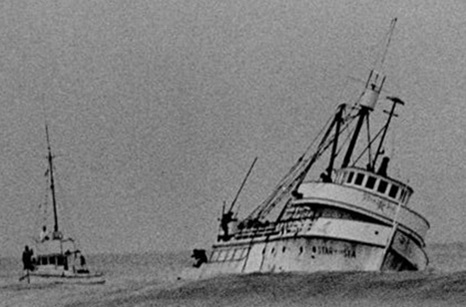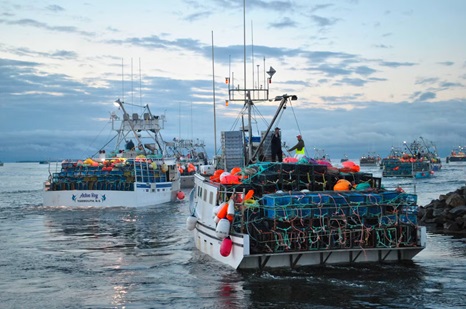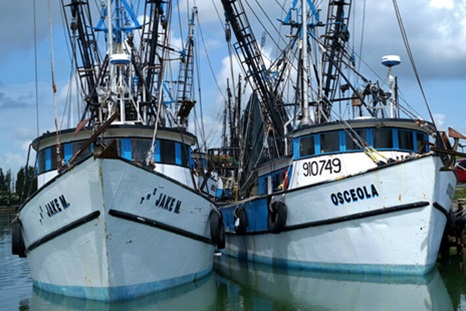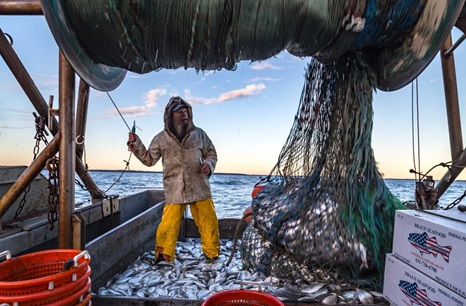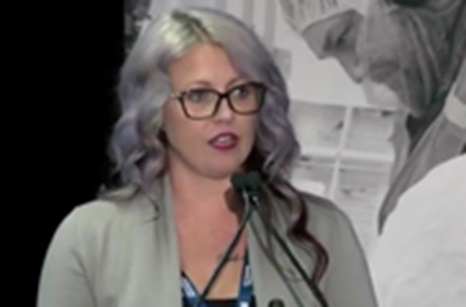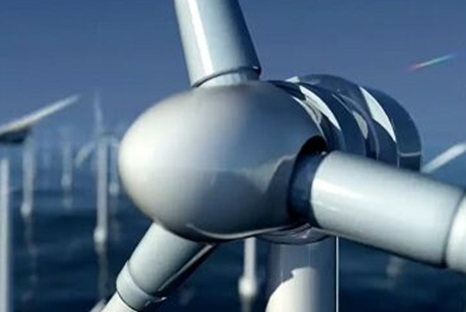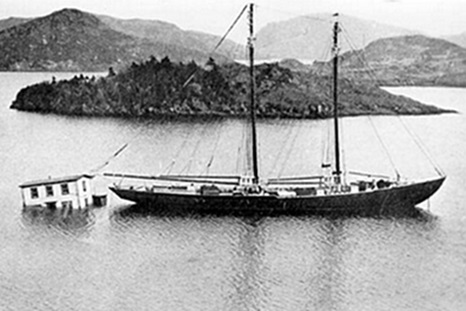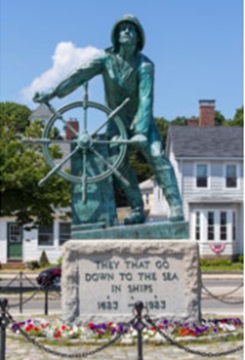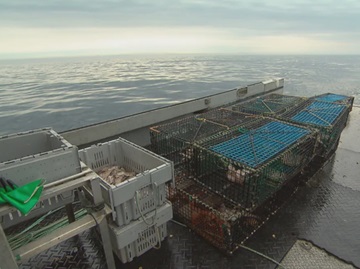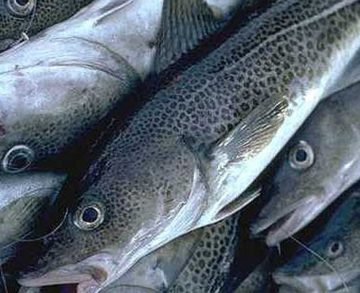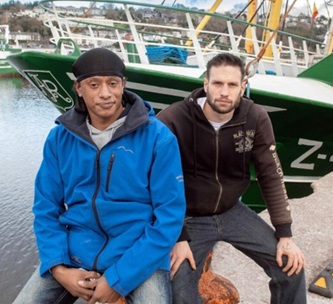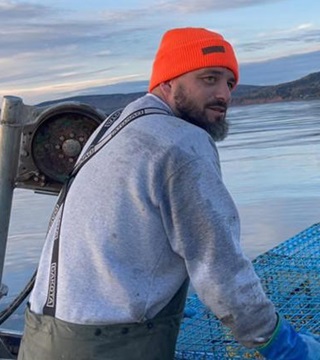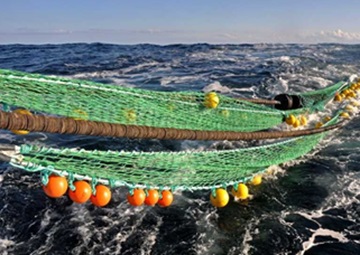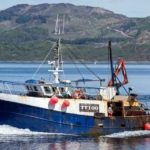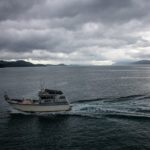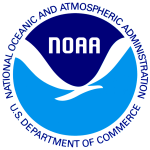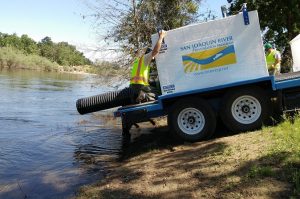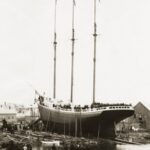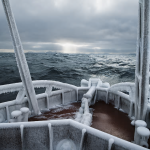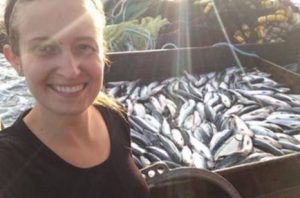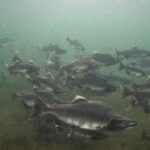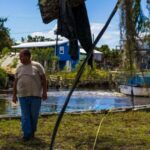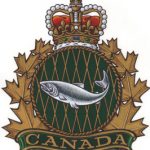Salmon farming companies settle class-action lawsuit alleging global price-fixing scheme
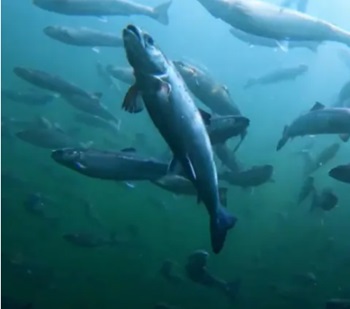 Seven companies accused of conspiring to manipulate the global price of salmon have agreed to pay a total of more than $5 million Cdn to settle a class-action lawsuit. Some of the largest players in the salmon farming industry in Newfoundland and Labrador, including Mowi and Grieg, were among the companies involved. The lawsuit claimed Cermaq Canada, Grieg Seafood, Lerøy Seafood AS, Marine Harvest Atlantic Canada, Mowi ASA, Nova Sea AS and Sjór AS conspired to manipulate the Norwegian spot market for salmon prices and in doing so influence global salmon prices. more, >>click to read<< 08:33
Seven companies accused of conspiring to manipulate the global price of salmon have agreed to pay a total of more than $5 million Cdn to settle a class-action lawsuit. Some of the largest players in the salmon farming industry in Newfoundland and Labrador, including Mowi and Grieg, were among the companies involved. The lawsuit claimed Cermaq Canada, Grieg Seafood, Lerøy Seafood AS, Marine Harvest Atlantic Canada, Mowi ASA, Nova Sea AS and Sjór AS conspired to manipulate the Norwegian spot market for salmon prices and in doing so influence global salmon prices. more, >>click to read<< 08:33
Blue power: Will ocean waves be California’s new source of clean energy?
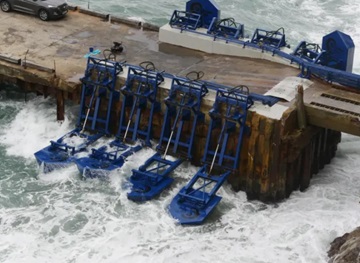 The world’s oceans may be vast, but they are getting crowded. Coastal areas are congested with cargo ships, international commercial fishing fleets, naval vessels, oil rigs and, soon, floating platforms for deep-sea mining. But the Pacific Ocean is going to get even busier: Nearly 600 square miles of ocean off California have been leased for floating wind farms, with more expected. Now the state is considering hosting another renewable energy technology in the sea: Blue power, electricity created from waves and tides. A new law signed by Gov. Gavin Newsom in October instructs state agencies to study the feasibility and impacts of capturing ocean movement to create power and report back to the Legislature by January 2025. more , >>click to read<<07:20
The world’s oceans may be vast, but they are getting crowded. Coastal areas are congested with cargo ships, international commercial fishing fleets, naval vessels, oil rigs and, soon, floating platforms for deep-sea mining. But the Pacific Ocean is going to get even busier: Nearly 600 square miles of ocean off California have been leased for floating wind farms, with more expected. Now the state is considering hosting another renewable energy technology in the sea: Blue power, electricity created from waves and tides. A new law signed by Gov. Gavin Newsom in October instructs state agencies to study the feasibility and impacts of capturing ocean movement to create power and report back to the Legislature by January 2025. more , >>click to read<<07:20
Coast Guard searching Gulf for fisherman reported overboard from commercial vessel
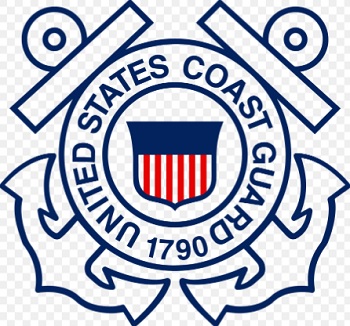 The US Coast Guard said it is searching a portion of the Gulf for a 35-year-old fisherman who reportedly fell overboard from a commercial fishing vessel early Saturday (Dec. 2), about 138 miles southwest of Port Fourchon. The man overboard report was radioed in around 2 a.m. from a vessel relaying the message from the commercial fishing vessel Miss Winnie, the USCG said in a statement. more, >>click to read<< We will update, as we get information. 14:00
The US Coast Guard said it is searching a portion of the Gulf for a 35-year-old fisherman who reportedly fell overboard from a commercial fishing vessel early Saturday (Dec. 2), about 138 miles southwest of Port Fourchon. The man overboard report was radioed in around 2 a.m. from a vessel relaying the message from the commercial fishing vessel Miss Winnie, the USCG said in a statement. more, >>click to read<< We will update, as we get information. 14:00
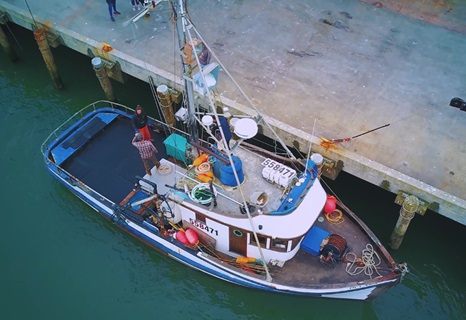
Reopening Areas for Groundfish Fishing After 20 Years
NOAA Fisheries has published regulation changes that will open fishing areas that have been closed for over 20 years. These areas were originally closed in the early 2000s to protect several species of overfished rockfish. With the rebuilt status of almost all these groundfish species, these closures can slowly be opened and allow fishermen greater access to catch healthy fish stocks. The regulations will also close some small areas to protect groundfish habitat, yelloweye rockfish (a species that is still rebuilding), and sensitive areas with abundant coral. These regulation changes are effective on January 1, 2024. Groundfish on the West Coast encompass over 90 species sharing one important trait: at some point in their life, they live on or near the ocean floor. Groundfish are a crucial part of West Coast underwater environments. They act as both predator and prey to different species and help maintain balance in underwater food chains. photos, charts, info, >>click to read<< 11:10
The Dead Ocean Effect: NAS study raises concern over offshore wind harming endangered whales
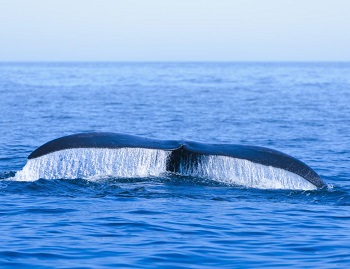 The National Academy of Sciences (NAS) released a lengthy report on what is known as the “dead ocean” threat with a focus on the Nantucket region, specifically what are called the Nantucket shoals. This is a major feeding ground of the desperately endangered North Atlantic Right Whale. It is really a good case study for all major offshore wind installations. The report uncovers something strange but true. The physics is technical, but the basic idea is simple. Wind turbines take a lot of the energy out of the air, creating a lower energy wake behind the wind turbine facility. Lower energy wind causes lower energy waves so there is much less mixing in the ocean surface layer. This depletes the oxygen level in the water, which can reduce the amount of living food sources that whales eat, which can harm the whales on a population level. This is why it is called the dead ocean effect. more, >>click to read<< 09:48
The National Academy of Sciences (NAS) released a lengthy report on what is known as the “dead ocean” threat with a focus on the Nantucket region, specifically what are called the Nantucket shoals. This is a major feeding ground of the desperately endangered North Atlantic Right Whale. It is really a good case study for all major offshore wind installations. The report uncovers something strange but true. The physics is technical, but the basic idea is simple. Wind turbines take a lot of the energy out of the air, creating a lower energy wake behind the wind turbine facility. Lower energy wind causes lower energy waves so there is much less mixing in the ocean surface layer. This depletes the oxygen level in the water, which can reduce the amount of living food sources that whales eat, which can harm the whales on a population level. This is why it is called the dead ocean effect. more, >>click to read<< 09:48
Marine Science Vessel Celtic Voyager Sets Sail to Canada
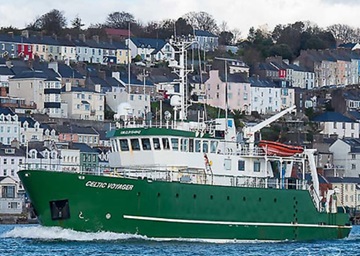 The Marine Institute’s Celtic Voyager, Ireland’s first multi-purpose research vessel, has been sold to Qikiqtaaluk Corporation of Nunavut, Canada. The vessel has played a significant role in advancing marine science and monitoring for the Irish government during its 25-year service life and has completed more than 600 surveys, enabled more than 6,500 science days, and sailed more than 550,000 miles while in service with the Marine Institute. The vessel will continue to be used for fisheries research and seabed mapping in Northern territories and Nunavut in Canada. Qikiqtaaluk Corporation is the Inuit birthright development corporation for the Qikiqtani Region and seeks to strengthen the social and economic well-being of Nunavut and the 15,000+ Inuit it represents. more, >>click to read<< 08:43
The Marine Institute’s Celtic Voyager, Ireland’s first multi-purpose research vessel, has been sold to Qikiqtaaluk Corporation of Nunavut, Canada. The vessel has played a significant role in advancing marine science and monitoring for the Irish government during its 25-year service life and has completed more than 600 surveys, enabled more than 6,500 science days, and sailed more than 550,000 miles while in service with the Marine Institute. The vessel will continue to be used for fisheries research and seabed mapping in Northern territories and Nunavut in Canada. Qikiqtaaluk Corporation is the Inuit birthright development corporation for the Qikiqtani Region and seeks to strengthen the social and economic well-being of Nunavut and the 15,000+ Inuit it represents. more, >>click to read<< 08:43
Canada’s biggest lobster fishery on notice after Right Whale entanglement in Nova Scotia gear
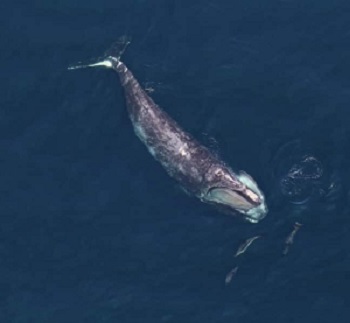 The entanglement of a North Atlantic right whale in Canadian lobster gear earlier this year will increase scrutiny this season on the lucrative southwestern Nova Scotia lobster fishery. In order to be certified as sustainable, the fishery must now prove its actions will not hinder the recovery of the critically endangered species. “This means the fishery has to demonstrate in collaboration with [the Department of Fisheries and Oceans that it’s going to strengthen its strategy to mitigate impacts on right whales,” says Kurtis Hayne, program director for the Marine Stewardship Council (MSC) in Canada. To satisfy the conditions, the Lobster Council of Canada, on behalf of industry and the Department of Fisheries and Oceans (DFO), have developed an action plan to increase overflights in lobster fishing area 33 and increase data collection, says Lobster Council executive director Geoff Irvine. more, >>click to read<< 06:39
The entanglement of a North Atlantic right whale in Canadian lobster gear earlier this year will increase scrutiny this season on the lucrative southwestern Nova Scotia lobster fishery. In order to be certified as sustainable, the fishery must now prove its actions will not hinder the recovery of the critically endangered species. “This means the fishery has to demonstrate in collaboration with [the Department of Fisheries and Oceans that it’s going to strengthen its strategy to mitigate impacts on right whales,” says Kurtis Hayne, program director for the Marine Stewardship Council (MSC) in Canada. To satisfy the conditions, the Lobster Council of Canada, on behalf of industry and the Department of Fisheries and Oceans (DFO), have developed an action plan to increase overflights in lobster fishing area 33 and increase data collection, says Lobster Council executive director Geoff Irvine. more, >>click to read<< 06:39
Massachusetts Commercial Fisherman Sentenced to Prison for Tax Evasion
 A Massachusetts man was sentenced today to 18 months in prison for evading taxes on income he earned as a commercial fisherman. According to court documents, Joaquin Sosa, of New Bedford, worked as a commercial fisherman and deckhand operating primarily out of the Port of New Bedford. Despite receiving approximately $1.9 million in income between 2012 and 2021, Sosa did not file tax returns reporting the income and did not pay the substantial income taxes owed on the income he earned. Sosa also worked under false identities over the years. To further conceal the source and disposition of his income, Sosa cashed his paychecks from fishing companies at check-cashing businesses, at times using false identities, and used the cash to fund his personal lifestyle. In total, Sosa caused a tax loss to the IRS of $520,415. >>click to read<< 19:34
A Massachusetts man was sentenced today to 18 months in prison for evading taxes on income he earned as a commercial fisherman. According to court documents, Joaquin Sosa, of New Bedford, worked as a commercial fisherman and deckhand operating primarily out of the Port of New Bedford. Despite receiving approximately $1.9 million in income between 2012 and 2021, Sosa did not file tax returns reporting the income and did not pay the substantial income taxes owed on the income he earned. Sosa also worked under false identities over the years. To further conceal the source and disposition of his income, Sosa cashed his paychecks from fishing companies at check-cashing businesses, at times using false identities, and used the cash to fund his personal lifestyle. In total, Sosa caused a tax loss to the IRS of $520,415. >>click to read<< 19:34
New England’s decades-old shrimp fishery, a victim of climate change, to remain closed indefinitely
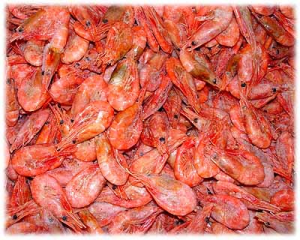 New England’s long-shuttered shrimp business, which fell victim to warming waters, will remain in a fishing moratorium indefinitely, fishery regulators ruled on Friday. The industry has been in a moratorium since 2013 in large part because environmental conditions off New England are unfavorable for the cold water-loving shrimp. That moratorium will remain in effect with no firm end date, a board of the regulatory Atlantic States Marine Fisheries Commission voted Friday. The board stopped short of calling the move a permanent moratorium because it included a provision to continue monitoring the shrimp population and consider reopening the fishery if the crustaceans approach a healthy level. Some U.S. fishermen have advocated trying to save New England’s shrimp fishery with new management approaches. Glen Libby, a former shrimp trawler, said regulators need to gather more data before taking drastic measures to close a historic fishery. more, >>click to read<< 14:20
New England’s long-shuttered shrimp business, which fell victim to warming waters, will remain in a fishing moratorium indefinitely, fishery regulators ruled on Friday. The industry has been in a moratorium since 2013 in large part because environmental conditions off New England are unfavorable for the cold water-loving shrimp. That moratorium will remain in effect with no firm end date, a board of the regulatory Atlantic States Marine Fisheries Commission voted Friday. The board stopped short of calling the move a permanent moratorium because it included a provision to continue monitoring the shrimp population and consider reopening the fishery if the crustaceans approach a healthy level. Some U.S. fishermen have advocated trying to save New England’s shrimp fishery with new management approaches. Glen Libby, a former shrimp trawler, said regulators need to gather more data before taking drastic measures to close a historic fishery. more, >>click to read<< 14:20
Nautical tributes for Aberdeen trawlerman Johnny Winton
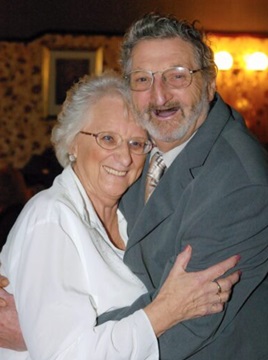 John Munro Winton – always known as Johnny, was born on June 7 1935 in Aberdeen. Son of trawler fisherman William Winton and his wife Margaret, Johnny had two brothers and a sister. On leaving Hilton Academy he followed in his father’s footsteps, and by 15 he was going to sea on the same vessel as his dad. A family man, although tired when he was at home after extended periods of time away at sea, Johnny made sure he was present for his children. Johnny retired from trawler fishing after 51 years, due to ill health. “Really what summed up dad’s retirement,” said Graham, “was the time he devoted to his grandchildren and great-grandchildren. Photos, more, >>click to read<< 10:20
John Munro Winton – always known as Johnny, was born on June 7 1935 in Aberdeen. Son of trawler fisherman William Winton and his wife Margaret, Johnny had two brothers and a sister. On leaving Hilton Academy he followed in his father’s footsteps, and by 15 he was going to sea on the same vessel as his dad. A family man, although tired when he was at home after extended periods of time away at sea, Johnny made sure he was present for his children. Johnny retired from trawler fishing after 51 years, due to ill health. “Really what summed up dad’s retirement,” said Graham, “was the time he devoted to his grandchildren and great-grandchildren. Photos, more, >>click to read<< 10:20
Unmanned commercial fishing sailboat grounds on Sugar Beach in Kīhei
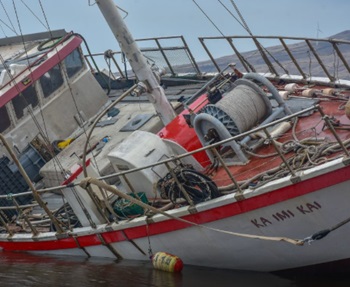 During rainy weather sometime midday on Wednesday, a 46-foot commercial fishing sailboat called Ka Imi Kai broke loose from its anchor or mooring in Māʻalaea Bay and slowly drifted more than a 1/4-mile before grounding on Sugar Beach in Kīhei. More than 24 hours later, the nearly 50-year-old ketch (a double-masted sailboat) remained grounding as tourists floated in the water 30 yards to the north and others walked the beach, many stopping to take pictures of the unusual sight. The communications department of the Hawaiʻi Department of Land and Natural Resources did not have an immediate response about the incident. photos, more, >>click to read<< 09:19
During rainy weather sometime midday on Wednesday, a 46-foot commercial fishing sailboat called Ka Imi Kai broke loose from its anchor or mooring in Māʻalaea Bay and slowly drifted more than a 1/4-mile before grounding on Sugar Beach in Kīhei. More than 24 hours later, the nearly 50-year-old ketch (a double-masted sailboat) remained grounding as tourists floated in the water 30 yards to the north and others walked the beach, many stopping to take pictures of the unusual sight. The communications department of the Hawaiʻi Department of Land and Natural Resources did not have an immediate response about the incident. photos, more, >>click to read<< 09:19

Giving Back: Wenzel uses net gains to help needy
As the son of a carpenter and custom home builder, Brick Wenzel said he hated getting wood splinters in his fingers when he was young. Born and raised in Lavalette, just north of Seaside Heights in Ocean County, he said his fascination with fish began in his early teens. As a young teen, he would collect bait fish and sell them to fishermen around town and party boat fishing captains to earn money, aside from his duties delivering the Ocean County Observer. His lifelong passion for all things fish-related has paid off. In 2018, to give back to the community at large, he founded America’s Gleaned Seafood, a non-profit group that donates leftover fish to area food banks. Offices for America’s Gleaned Seafood are located at the Point Pleasant Seafood Co-Op, which he believes is the oldest farmers’ cooperative in the United States. more, >>click to read<< 08:01
GoFundMe for Bandon hero hits target in 24 hours
A GoFundMe which was set up for a courageous electrician from Bandon who rescued a woman from a sinking car at Kennedy Quay reached its target in under 24 hours. William Ross, alongside two Belgian fishermen, Farid Langens and Kevin Roos, played a crucial role in freeing the woman. The trio acted without hesitation and managed to pull the woman from her car, which had entered the water just after midday on Monday. “We were just finished unloading our catch and we heard some people shouting on the quay. They said, ‘There’s a car in the water!’” Farid told Red FM’s ‘The Neil Prendeville Show’. More, >>click to read<< 14:29
$500K Earmarked For Cape Cod Fisherman. Here’s What It’ll Go Toward
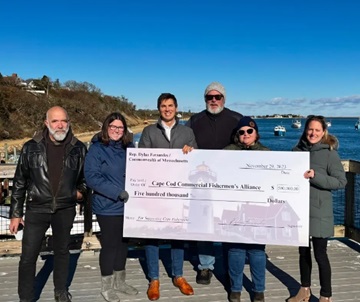 On Wednesday, State Rep. Dylan Fernandes presented that $500,000 in funding to the Cape Cod Commercial Fishermen’s Alliance (CCCFA), with a stated goal to support Cape fishermen and sustainable fishing livelihoods on the Cape and Islands. “Fishing is not just an industry on the Cape and Islands – it is woven into the very culture and fabric of our communities,” said Rep. Fernandes. “These funds are a pathway toward adaptive fishing practices, healthier oceans, and a sustainable industry that can be passed down to future generations of fishing families.” more, >>click to read<< 13:02
On Wednesday, State Rep. Dylan Fernandes presented that $500,000 in funding to the Cape Cod Commercial Fishermen’s Alliance (CCCFA), with a stated goal to support Cape fishermen and sustainable fishing livelihoods on the Cape and Islands. “Fishing is not just an industry on the Cape and Islands – it is woven into the very culture and fabric of our communities,” said Rep. Fernandes. “These funds are a pathway toward adaptive fishing practices, healthier oceans, and a sustainable industry that can be passed down to future generations of fishing families.” more, >>click to read<< 13:02
Equinor Names California Floating Wind Project
 Equinor has announced the name of its floating offshore wind project off the coast of California, Atlas Wind. The lease area, which lies 60 miles from Morro Bay, has the capacity to provide over 2GW of reliable, renewable power, enough to power 1.7 million California homes once complete. California is poised to become a growing force in the US energy transition with a nation-leading target of 25GW of offshore wind energy by 2045. Approximately two-thirds of the United States’ offshore wind energy potential lies in deep coastal waters, like the Pacific Ocean, where water depths reach 1,000 meters (3,280 feet) or more. more, >>click to read<< 11:36
Equinor has announced the name of its floating offshore wind project off the coast of California, Atlas Wind. The lease area, which lies 60 miles from Morro Bay, has the capacity to provide over 2GW of reliable, renewable power, enough to power 1.7 million California homes once complete. California is poised to become a growing force in the US energy transition with a nation-leading target of 25GW of offshore wind energy by 2045. Approximately two-thirds of the United States’ offshore wind energy potential lies in deep coastal waters, like the Pacific Ocean, where water depths reach 1,000 meters (3,280 feet) or more. more, >>click to read<< 11:36
Prawn trawler crew rescued from sinking boat off Far North Queensland coast
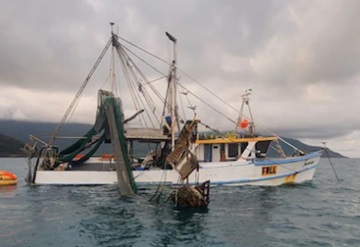 The skipper of a prawn trawler has described watching it sink off the Far North Queensland coast after a passing freighter came to the crew’s rescue. The FV Santiago was about three kilometres offshore near Cedar Bay, south of Cooktown, on Tuesday evening when Steve Underhill found water pouring into the engine room and made the immediate call to abandon ship. “It was way too deep to worry about pumping out,” skipper Mr Underhill said. “We’d already lost it.” His three crew members included another experienced skipper, but also his wife and stepson. The Santiago crew activated an emergency distress beacon, and within 20 minutes, a Border Force plane flew over the trawler while nearby Sea Swift freighter, the Albatross Bay, mobilized to rescue the crew. Photos, >>click to read<< 07:26
The skipper of a prawn trawler has described watching it sink off the Far North Queensland coast after a passing freighter came to the crew’s rescue. The FV Santiago was about three kilometres offshore near Cedar Bay, south of Cooktown, on Tuesday evening when Steve Underhill found water pouring into the engine room and made the immediate call to abandon ship. “It was way too deep to worry about pumping out,” skipper Mr Underhill said. “We’d already lost it.” His three crew members included another experienced skipper, but also his wife and stepson. The Santiago crew activated an emergency distress beacon, and within 20 minutes, a Border Force plane flew over the trawler while nearby Sea Swift freighter, the Albatross Bay, mobilized to rescue the crew. Photos, >>click to read<< 07:26
Maine lobsterman shows off rare bi-colored, hermaphroditic lobster
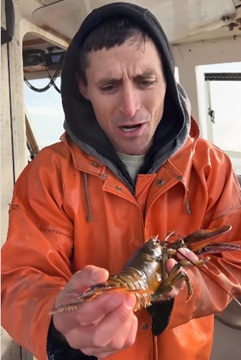 It’s not uncommon for a lobster fisherman to bring up a lobster with more than one color, but more than one sex – that’s particularly rare. Jacob Knowles, a fifth-generation Maine lobsterman, posted videos to YouTube and Instagram last week showing off just that – a lobster that appears to be half-male, half-female. He said a fellow lobster fisherman caught it and gave it to him. “It’s the coolest lobster I’ve ever seen,” he said. In the videos, Knowles noted fans have nicknamed the lobster “Bowie,” after the late singer/songwriter David Bowie. It’s also half-blue, which itself is a rarity. Turning it over, the genitalia running along the tail are clearly half-male, half-female. more,video, >>click to read<< 06:29
It’s not uncommon for a lobster fisherman to bring up a lobster with more than one color, but more than one sex – that’s particularly rare. Jacob Knowles, a fifth-generation Maine lobsterman, posted videos to YouTube and Instagram last week showing off just that – a lobster that appears to be half-male, half-female. He said a fellow lobster fisherman caught it and gave it to him. “It’s the coolest lobster I’ve ever seen,” he said. In the videos, Knowles noted fans have nicknamed the lobster “Bowie,” after the late singer/songwriter David Bowie. It’s also half-blue, which itself is a rarity. Turning it over, the genitalia running along the tail are clearly half-male, half-female. more,video, >>click to read<< 06:29
Bluefin Tuna Get Busy Off North Carolina – Inside the $40 billion tuna industry
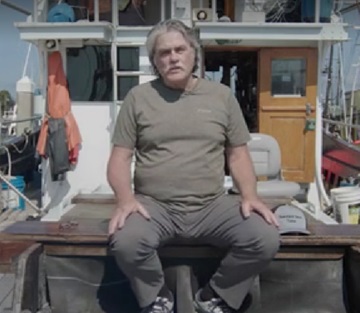 In November 1981, a fleet of briefcase-toting lobbyists, scientists and political negotiators gathered in sunny Tenerife, Spain, to decide the fate of Atlantic bluefin tuna. During the meeting in Tenerife, the American delegation to the International Commission for the Conservation of Atlantic Tunas proposed a disarmingly simple solution: they would draw a line down the middle of the Atlantic Ocean and split the bluefin into two separate stocks. The proposal passed and, eventually, for a variety of reasons, Atlantic bluefin tuna did bounce back. – Inside the $40 billion tuna industry – Once a staple in American homes, canned tuna consumption dropped 45.7% between 2000 and 2021. That is mainly due to changing consumer preferences, sustainability concerns, market consolidation and a major price-fixing scandal between Bumble Bee and StarKist that lasted nearly a decade. Despite this, in 2020, the U.S. remained the top importer. The industry, largely controlled by conglomerates such as Thai Union Group, saw a pandemic-driven demand spike in 2020, but that has since declined. Video, >>click to read<< 16:20
In November 1981, a fleet of briefcase-toting lobbyists, scientists and political negotiators gathered in sunny Tenerife, Spain, to decide the fate of Atlantic bluefin tuna. During the meeting in Tenerife, the American delegation to the International Commission for the Conservation of Atlantic Tunas proposed a disarmingly simple solution: they would draw a line down the middle of the Atlantic Ocean and split the bluefin into two separate stocks. The proposal passed and, eventually, for a variety of reasons, Atlantic bluefin tuna did bounce back. – Inside the $40 billion tuna industry – Once a staple in American homes, canned tuna consumption dropped 45.7% between 2000 and 2021. That is mainly due to changing consumer preferences, sustainability concerns, market consolidation and a major price-fixing scandal between Bumble Bee and StarKist that lasted nearly a decade. Despite this, in 2020, the U.S. remained the top importer. The industry, largely controlled by conglomerates such as Thai Union Group, saw a pandemic-driven demand spike in 2020, but that has since declined. Video, >>click to read<< 16:20
Locals want more rules for seafood imports
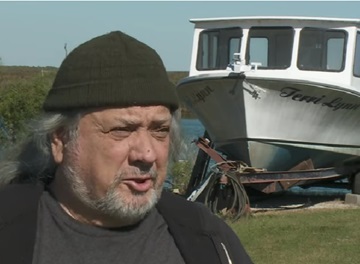 Only about 10% of seafood consumed in America is domestic. That’s crippling the Louisiana seafood industry. “For the last two years it’s just about ruined the industry,” Louisiana fisherman Pete Gerica said. In his 50 years on the water, Gerica has never seen it this bad. “There’s just so much you can take,” Gerica said. “Fuel prices being $4.00 a gallon. The cost of everything you buy, it’s just you can’t stay in business if you keep on spending money and you ain’t making none.” Monday, Congressman Garret Graves and Lt. Governor Billy Nungesser testified before the Louisiana Seafood Task Force in Baton Rouge. more, video, >>click to read<< 12:40
Only about 10% of seafood consumed in America is domestic. That’s crippling the Louisiana seafood industry. “For the last two years it’s just about ruined the industry,” Louisiana fisherman Pete Gerica said. In his 50 years on the water, Gerica has never seen it this bad. “There’s just so much you can take,” Gerica said. “Fuel prices being $4.00 a gallon. The cost of everything you buy, it’s just you can’t stay in business if you keep on spending money and you ain’t making none.” Monday, Congressman Garret Graves and Lt. Governor Billy Nungesser testified before the Louisiana Seafood Task Force in Baton Rouge. more, video, >>click to read<< 12:40
Environmentalists face off against environmentalists over offshore wind projects
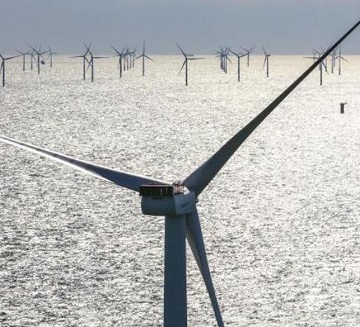 The Energy Department estimates offshore wind turbines could produce as much as 20% of regional power needs along the densely populated Eastern Seaboard from Florida to Maine by 2050. To reach that goal, the Biden administration had hoped to green-light 30 gigawatts from utility-scale offshore wind farms by 2030—enough to power nine million homes. That now seems wildly ambitious, as billions of dollars in projects have been canceled amid staggering cost overruns, soaring interest rates and supply-chain delays. Added to these economic woes are persistent environmental concerns, as attested to by some recent federal lawsuits. In September, for example, Cape May County, N.J., and a coalition of regional environmental, fisheries and tourism groups sought to stop development of two utility-scale projects off the New Jersey coast. more, >>click to read<< 11:54
The Energy Department estimates offshore wind turbines could produce as much as 20% of regional power needs along the densely populated Eastern Seaboard from Florida to Maine by 2050. To reach that goal, the Biden administration had hoped to green-light 30 gigawatts from utility-scale offshore wind farms by 2030—enough to power nine million homes. That now seems wildly ambitious, as billions of dollars in projects have been canceled amid staggering cost overruns, soaring interest rates and supply-chain delays. Added to these economic woes are persistent environmental concerns, as attested to by some recent federal lawsuits. In September, for example, Cape May County, N.J., and a coalition of regional environmental, fisheries and tourism groups sought to stop development of two utility-scale projects off the New Jersey coast. more, >>click to read<< 11:54
Athearn Marine Agency Boat of the Week: 56′ DMR Scalloper/Dragger, 500HP, John Deere
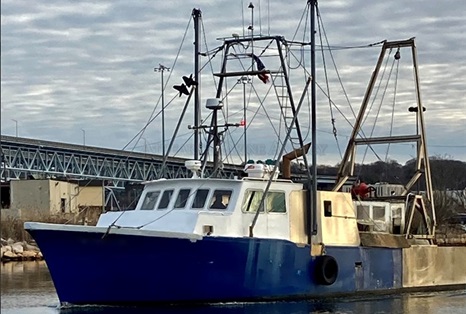 To review specifications, information, and 37 photos’, >click here<, To see all the boats in this series, >click here< 10:50
To review specifications, information, and 37 photos’, >click here<, To see all the boats in this series, >click here< 10:50
Get to know your local western rock lobster fisher and their produce
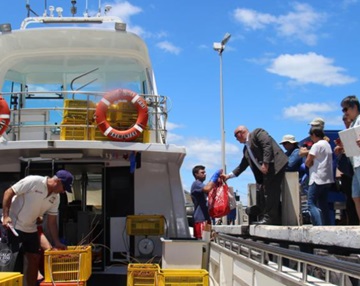 It’s a warm summer’s day in December with a light breeze blowing in from the ocean. You’ve dragged your mum, boyfriend, sister, cousin or friend along to join the locals and tourists down at the port to get your hands on the freshest and best crustacean in the world, right in time for the Christmas festivities that are around the corner. The rock lobster you purchased has just been caught by the commercial fishermen, kept in a live tank until the point of landing at port and then weighed and put on ice in your esky. Thanks to Western Rock Lobster’s Back of Boat (BoB) initiative, this is a reality for seafood lovers and fishers across the state. more, >>click to read<< 08:30
It’s a warm summer’s day in December with a light breeze blowing in from the ocean. You’ve dragged your mum, boyfriend, sister, cousin or friend along to join the locals and tourists down at the port to get your hands on the freshest and best crustacean in the world, right in time for the Christmas festivities that are around the corner. The rock lobster you purchased has just been caught by the commercial fishermen, kept in a live tank until the point of landing at port and then weighed and put on ice in your esky. Thanks to Western Rock Lobster’s Back of Boat (BoB) initiative, this is a reality for seafood lovers and fishers across the state. more, >>click to read<< 08:30
Vessel Review: F/V ERIN BRUCE II – Wanchese Argentina adds Scallop Trawler to the Fleet
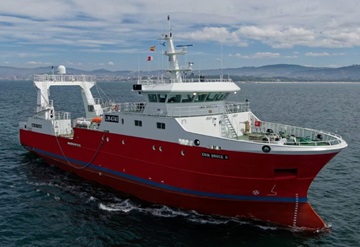 Wanchese Argentina, a subsidiary of Cooke Seafood USA’s Wanchese Fish Company, took delivery of a new scallop trawler built by Armon Shipyard of Spain at its recently acquired Astilleros Ria de Vigo facilities. F/V Erin Bruce II will be used for year-round trawling and processing of Patagonian scallops off Argentina primarily for export to Europe and North America. Cooke Seafood USA said it is the biggest newbuild factory trawler to be operated in Argentina and the first to be constructed specifically for the domestic scallop fishery. Ross Butler, CEO of the company, remarked that the vessel is designed to be fuel-efficient and to offer modern crew accommodations. Photos, more, >>click to read<<07:48
Wanchese Argentina, a subsidiary of Cooke Seafood USA’s Wanchese Fish Company, took delivery of a new scallop trawler built by Armon Shipyard of Spain at its recently acquired Astilleros Ria de Vigo facilities. F/V Erin Bruce II will be used for year-round trawling and processing of Patagonian scallops off Argentina primarily for export to Europe and North America. Cooke Seafood USA said it is the biggest newbuild factory trawler to be operated in Argentina and the first to be constructed specifically for the domestic scallop fishery. Ross Butler, CEO of the company, remarked that the vessel is designed to be fuel-efficient and to offer modern crew accommodations. Photos, more, >>click to read<<07:48






